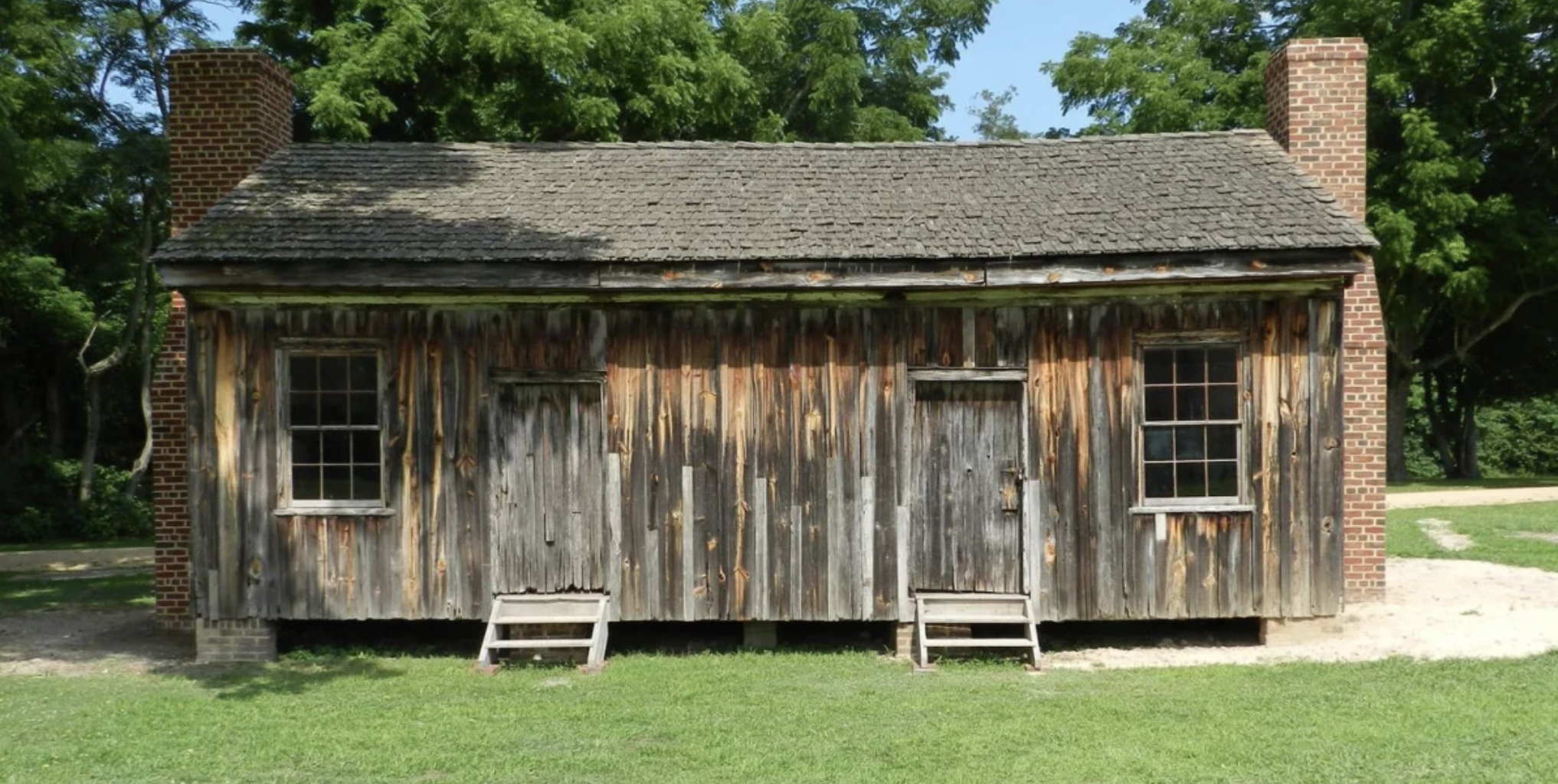From rentals to bathrooms: Airbnb listings aren’t the first offensive effort to commercialize slave cabins
Airbnb has apologized and removed the listings, but the incident has renewed preservationists’ concerns about the state of the country’s former slave dwellings.
The Airbnb listing was simple: a charming Mississippi cottage with old-fashioned decor and access to Wi-Fi and streaming platforms. Listings in Louisiana and Georgia had similar descriptions, portraying them as charming, rustic homes perfect for a cozy weekend getaway.
The now-removed listings had one major thing in common, though: They were once home to those enslaved.
Recent outrage over the listed slave cabins started with the Panther Burn Cottage, a Greenville, Mississippi, slave cabin built on a plantation in the 1800s. Wynton Yates, a Black lawyer from New Orleans, posted a now-viral TikTok about the Airbnb listing late last month. He said he was shocked when he saw the listing. “My first reaction was ‘This is wild! How does anybody think this is OK?’” Yates told NBC News. “I was appalled by what I was looking at. It’s just disrespectful to all of the people who lived and died in those spaces.”
Airbnb has since apologized and removed the Mississippi listing and any others “known to include former slave quarters in the United States.” But the incident has renewed concerns from preservationists about the state of former slave dwellings in the country. Preservationists like Joseph McGill Jr., founder of the Slave Dwelling Project, say the commercialization of plantation sites has been happening for decades.
“I’ve come across slave dwellings with many uses like rental spaces, she sheds, man caves, garages. I’ve even come across one being used as a public restroom of all things!” McGill said. “I’ve been at this for 12 years and what happened is nothing new. What is new is that now TikTok exists, and this thing called cancel culture exists.” McGill added of those who own such rentals: “In their minds and in their eyes, they’re doing nothing wrong.”
History vs. aesthetic
The Historic American Buildings Survey, a federal preservation program created in 1933, lists more than 400 slave houses in the United States. But, over the decades, several slave dwellings have vanished, been torn down, or turned into bed and breakfasts, offices, garages, etc., according to preservationist Jobie Hill, founder of the Saving Slave Houses Project. In some cases, residents aren’t aware that the small structures on private property were once slave dwellings until Hill informs them, she told Atlas Obscura. And long before Airbnb began listing the slave cabins, the homes served as rustic cottages for travelers. To preservationists, this is yet another example of people profiting from the ills of slavery, but for some travelers, the history of the site is exactly what draws them to stay.
One individual who stayed at the Panther Burn Cottage last October, according to the Airbnb site, left a positive review about the former slave cabin on the listing, writing that the location made them feel like they were “stepping back into history.”
“This place was so beautiful and peaceful. We stayed in the cabin and it was a (sic) historic but elegant,” the user wrote, adding that the “cabin was stocked with everything we needed plus more.” The reviewer said they’d recommend the cottage and are looking forward to visiting again and staying in the main house on the plantation.
In Virginia, the Prospect Hill Plantation Inn offers stays at slave quarters with names like “Boy’s Log Cabin” and “Uncle Guy’s Loft,” which is described as a small carpeted room that served as “the sleeping quarters for up to fifteen field-hands.” A reviewer who stayed in Prospect Hill’s slave quarters in 2014 praised the inn on Tripadvisor for its “amazing history,” and said that the antiquity of the site contributed to “the charm of the plantation.”
“We stayed in Uncle Guy’s loft for the night where apparently slaves used to stay during the cold winter months. Initially, given how old the plantation is, I thought the place might be kind of scary and I would be up all night and not able to sleep,” the guest wrote. “However, the loft is actually pretty cozy and I wasn’t really freaked out after I got to the room — doesn’t give off a scary vibe but actually more of a cozy vibe — kind of hard to pull off in such a (sic) old place.
The reviewers did not immediately respond to a request for comment from NBC News.
In 1985, the original owners of the Prospect Hill Inn, Bill Sheehan and his wife Mireille, boasted to The Washington Post about renovating the main home and the former slave quarters installing everything from air conditioning to bathrooms but retaining “the original character, including fireplaces and verandas.”





